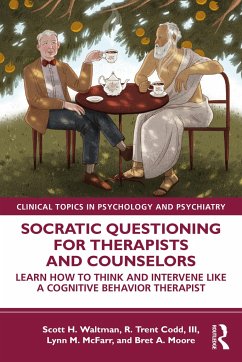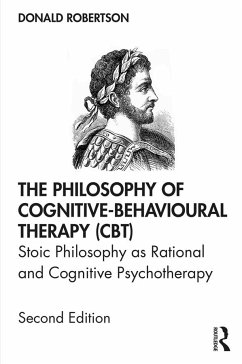
Cognitive Therapy for Command Hallucinations
An advanced practical companion

PAYBACK Punkte
32 °P sammeln!
Drawing on social rank theory, Byrne and others developed an effective therapy targeted at Command Hallucinations with the aim of reducing distress and risk behaviour. Here, problem solving strategies and solutions are presented for overcoming therapeutic obstacles with clients.
This new work provides clinicians with a detailed guide illustrating in depth the techniques and strategies developed for working with command hallucinations.














